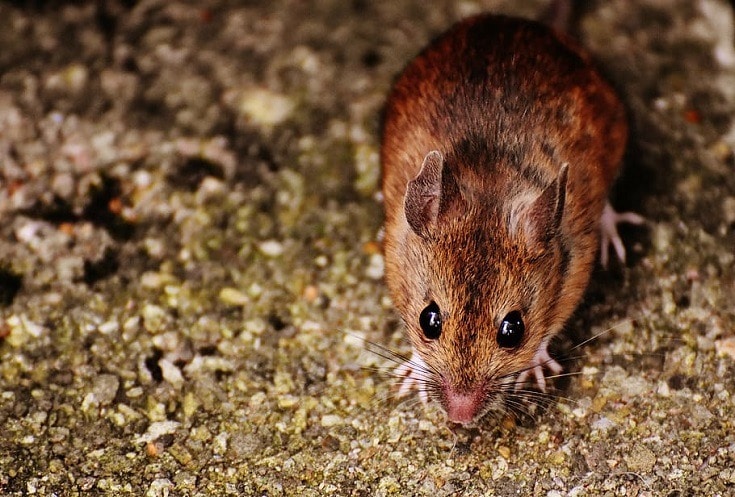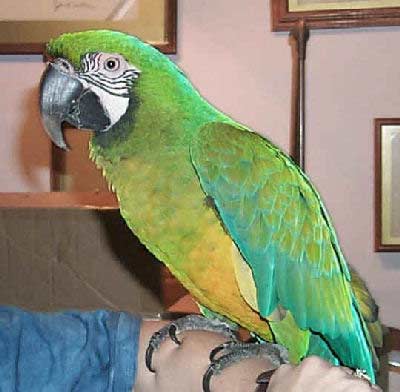Small rodents can make great pets because they are easy to care for, friendly, and simple to tame, and in general, they enjoy human interaction. They can be especially ideal for children, as they require minimal care, space, and housing. Often referred to as “pocket pets,” small rodents also tend to have relatively short lifespans and are not a massive commitment.
While their size and cage living may make their care seem easier, these animals still require daily care and attention to stay happy and healthy. This can be a perfect opportunity to teach kids about responsibility.
If you’re looking for a low-maintenance pet to add to your family, check out this list of the most popular small rodents.

The 8 Great Small Rodent Pets
1. African Dormouse
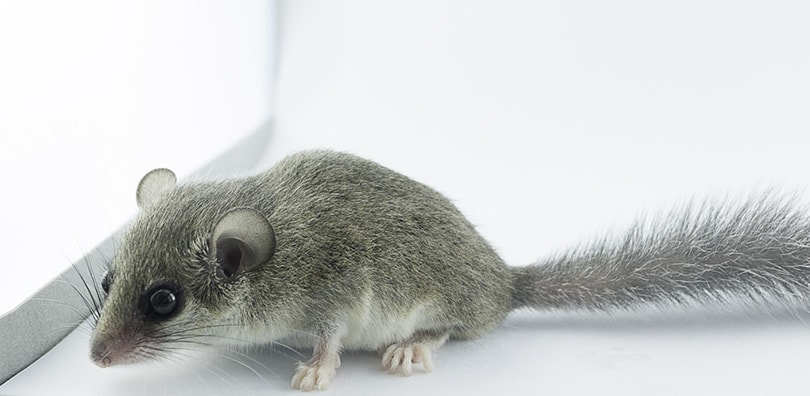
Also commonly known as the “micro-squirrel,” the African dormouse shares many features with both mice and squirrels. These small rodents are native to Southern Africa in a variety of habitats and are extremely agile climbers. They are known for being nimble, active, and fast animals, which can make them difficult to handle for inexperienced owners. They need a large enclosure with plenty of climbing space and typically live up to 6 years in captivity.
They are nocturnal rodents, so they are more active in the early morning. They are also sensitive to light, so they need to be kept away from large windows or bright lighting. The African dormouse is a highly social creature that needs to live in groups or at least in pairs.
2. Chinchilla
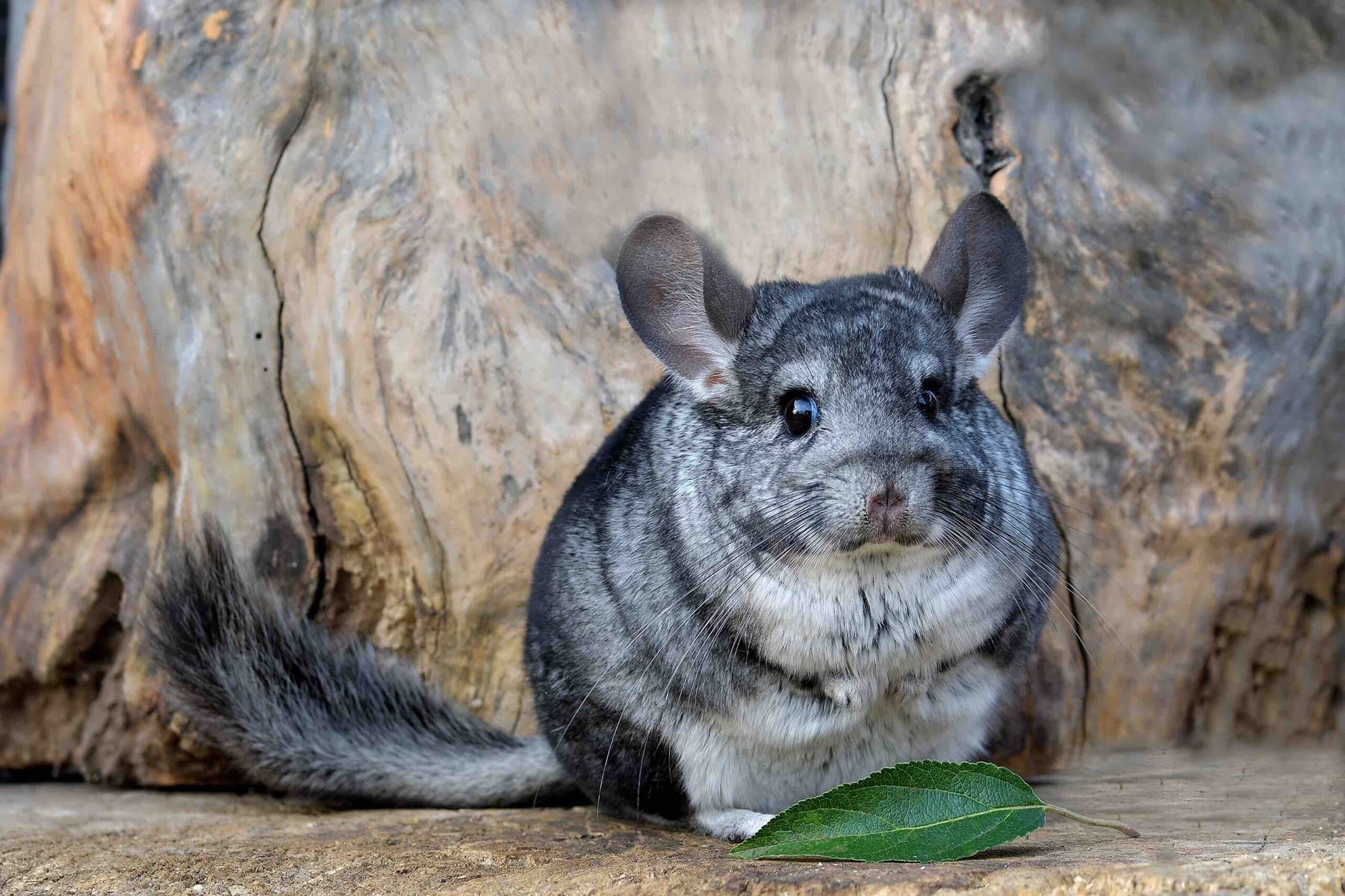
Chinchillas are native to South America and can live for up to 15 years in captivity. They are a popular choice for a small rodent pet, as they are easily tamed, playful, and active. They are nocturnal and thus should only be handled in the early morning or late evening, and they need to be covered during the day from any bright light source. They are active creatures that will need a large enclosure to run around in and regular interactions with their owner.
Chinchillas are known for their luxurious fur, large rounded ears, and long fluffy tails. They are popular pets among children, but their active and agile nature can make them difficult to handle for younger kids.
3. Common Degu
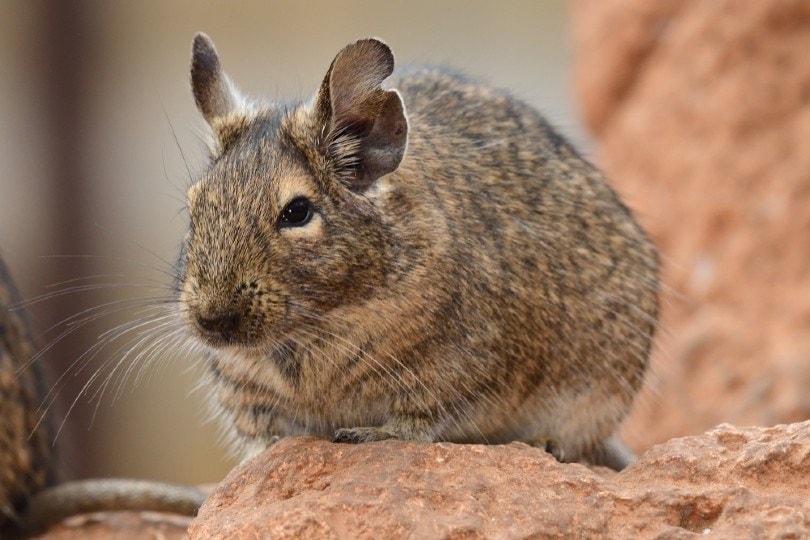
The common degu is native to Chile and is a close cousin of the guinea pig and the chinchilla. Until recently, these small rodents were seldom found in pet shops but have slowly been gaining popularity as pocket pets. Even so, some regions in the United States, including California and Utah, consider the degu an invasive species, and they are illegal to own as pets.
They have been gaining popularity due to their friendly personalities, diurnal habits (awake during the day and sleeping at night), and ease of training. They should ideally be kept in pairs or more and can live for 5–8 years in captivity with proper care.
- See also: Largest Rodents in the World
4. Common Rat
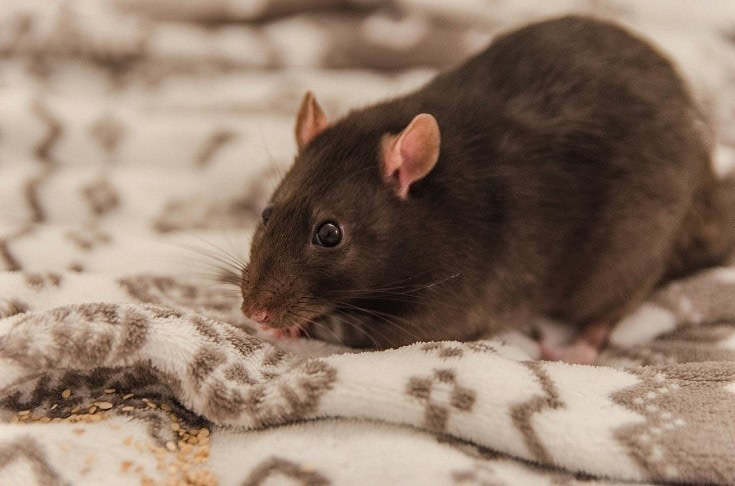
The common rat is one of the most overlooked small pets, but they are actually easy to care for and exceedingly tamable. They are typically calm, easy-to-care-for rodents that enjoy being handled and are not prone to biting or nipping. Rats are unique in that you can quickly form a close bond with them. They are highly intelligent and able to learn tricks and navigate mazes and puzzles easily. Most pet rats are a species called the Norway rat, also known as the brown rat or street rat.
Rats are social creatures that are best kept in pairs or groups and are nocturnal and thus more active at night. That said, females can go into heat around once a week after they reach puberty, making these rodents exceedingly fast breeders. They are short-lived animals, with a typical lifespan of only 18–36 months.
5. Mongolian Gerbil
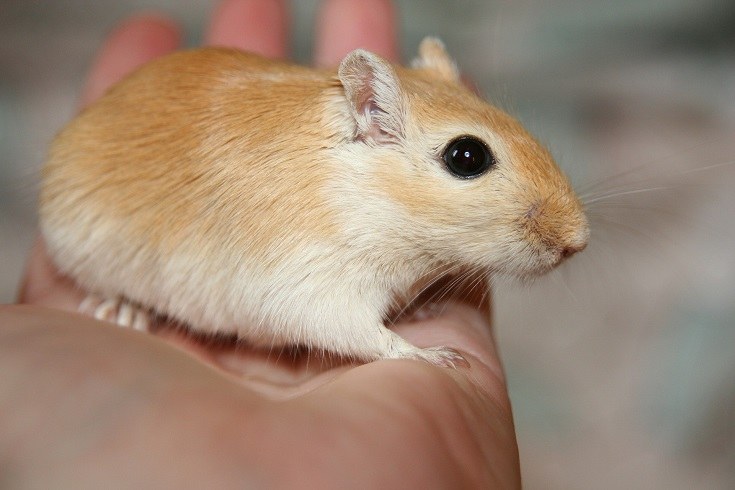
Mongolian gerbils are popular rodent pets, especially among children, as they are easy to care for and don’t require much interaction from humans. That said, they are social creatures that do not do well living a solitary life and are best kept in pairs or groups. They have a fairly short lifespan of about 2 years and are not a huge time investment as a pet. They are active animals that need a large cage to run around in and preferably, a wheel to keep them healthy. While they are generally fine with being handled, their active nature can make them difficult to hold for smaller children.
Gerbils are a great choice of rodents as pets, as they are easy to care for, curious, and friendly animals that will provide you with hours of entertainment.
Related Reads:
6. Guinea Pig
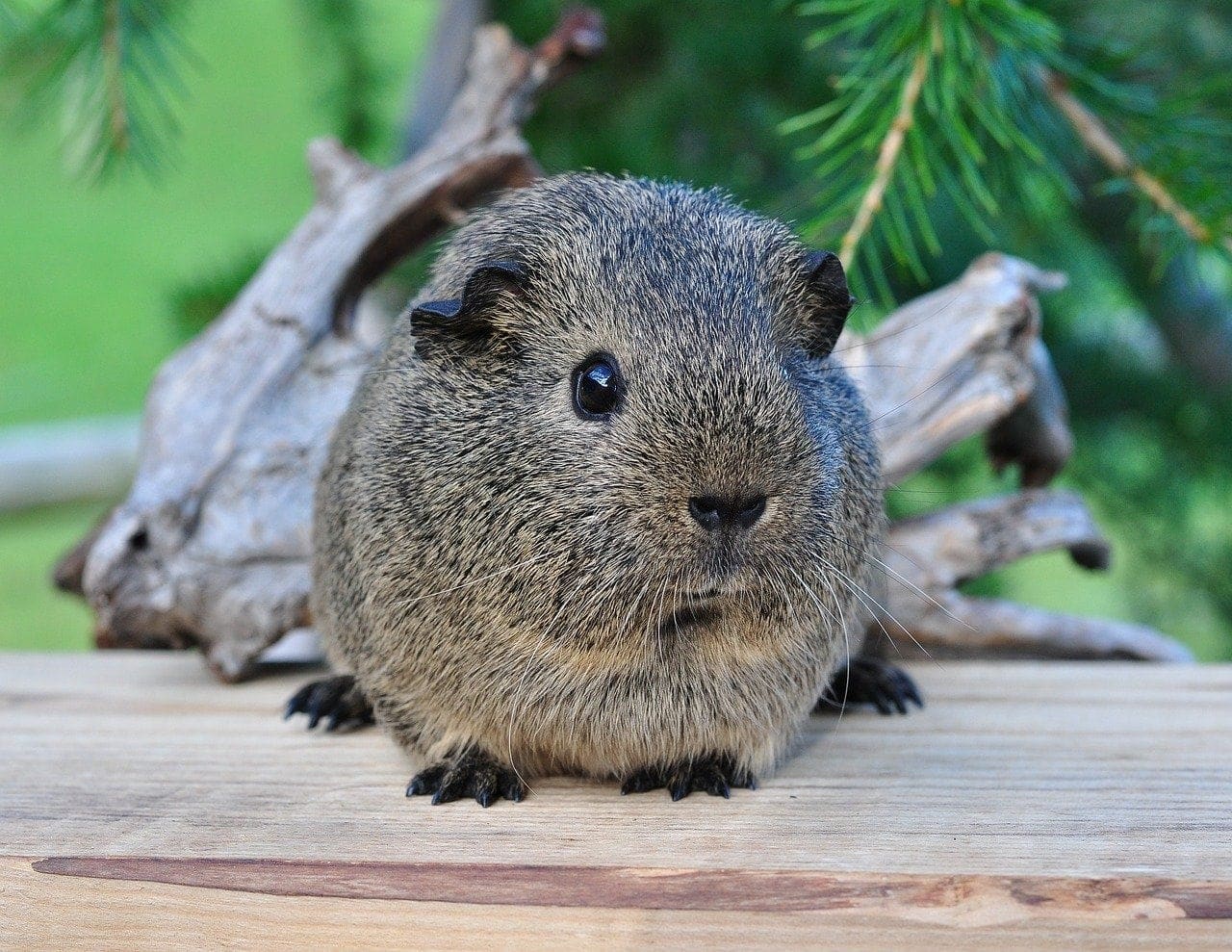
Native to South America, guinea pigs are popular small pets, as they are healthy and hardy animals and easy to care for. They have varied personalities that make each guinea pig unique. Some are shy and withdrawn, while others are dominant and outgoing. A unique trait among guineas is that they purr just like cats when they’re happy, along with making several other adorable vocalizations.
Guineas are highly social rodents that are far happier when living together with other guinea pigs. They are also fairly active animals that need a sizable cage with loads of running space to stay happy, healthy, and fit. Guineas have a longer lifespan than other, similar rodents and can live for up to 7 years.
7. Hamster
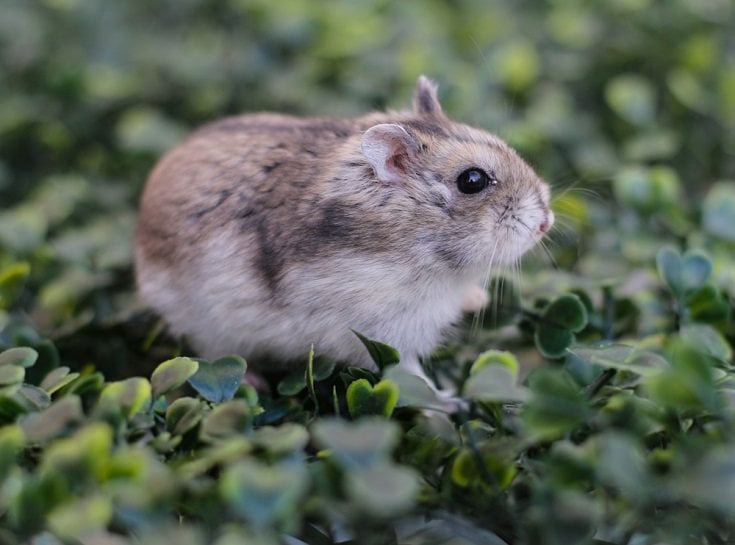
Hamsters are classic small pets that are a popular choice for young children. They are easy to care for and easily trainable. However, hamsters are known to be fairly nippy, and females in particular are prone to biting at times. Hamsters come in several different varieties—19 in all—and some are tiny, like the dwarf hamster, while species like the Syrian hamster can get fairly large. You will need to house these species accordingly and provide them with adequate space, an exercise wheel, and chew toys.
Hamsters typically live for around 3 years in captivity, and while most species, like dwarf hamsters, are social and enjoy the company of others, some species, like the Syrian hamster, prefer to live alone.
8. House Mouse
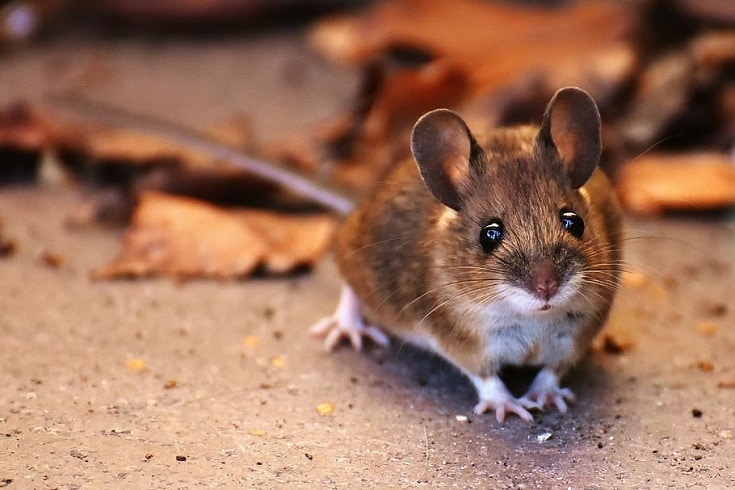
The house mouse is a sweet and highly entertaining pocket pet. They are easy to care for but not as prone to being handled as larger rodents like rats, as they are fairly skittish. A domesticated mouse that is kept as a pet is generally referred to as a “fancy mouse,” and they are often selectively bred for coloration and size. They can vary widely in size, from as small as 7 inches up to 12 inches.
A healthy mouse in captivity can easily live for up to 30 months, but they typically live for 18–24 months. They are nocturnal and mostly active at night, and although they are social animals, they are also fine to live alone, especially males.
See also:

Conclusion
While many of the rodents on this list are technically low maintenance, that doesn’t mean they don’t require proper care. Their habitats must be cleaned regularly, they will need to be fed species-appropriate foods, and you will have to find a vet specializing in small mammals just in case your pet gets sick or injured. So, get a good set-up, buy the right food, and make time for maintenance, and you and your family can enjoy a happy and healthy rodent pet!
Featured Image Credit: CC0 Public Domain, Pxfuel
